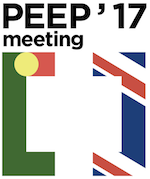Implementing intercultural pedagogy in the teaching of English at Primary schools
DOI:
https://doi.org/10.34630/sensos-e.v5i1.2517Keywords:
plurilingual skill, intercultural approach, citizenship and educationAbstract
Exposure to other cultures right from early childhood is very crucial. There is growth and richness in the cultural horizons of pupils who come across different cultures and interact with them. Bearing this in mind, this article aims at illustrating some didactic activities in which some intercultural (Chlopek, 2008) and plurilingual (Cenoz & Gorter, 2013) approaches were made during the internship of the Master of Arts in Teaching English at 1st Cycle of Basic Education. Approaches of this kind offered pupils the opportunity to critically analyse, compare cultures and languages as well as create some project related to this field.
Results from data analysis and interpretation based on observations, questionnaires, and documentary analysis (Walker, 1985) in this case study show that intercultural approach is a relevant approach in the teaching of English at primary schools. In fact, pupils were engaged in tasks which posed them challenges, by training them to become citizens of a pluricultural and plurilingual world (Cruz, & Orange, 2016). Moreover, evidences show that having had the opportunity to be exposed to different cultures, pupils were able to create intercultural awareness in them, which consequently helped them to develop respect for the other and their respective cultures (Concelho Nacional de Educação, 2013).



